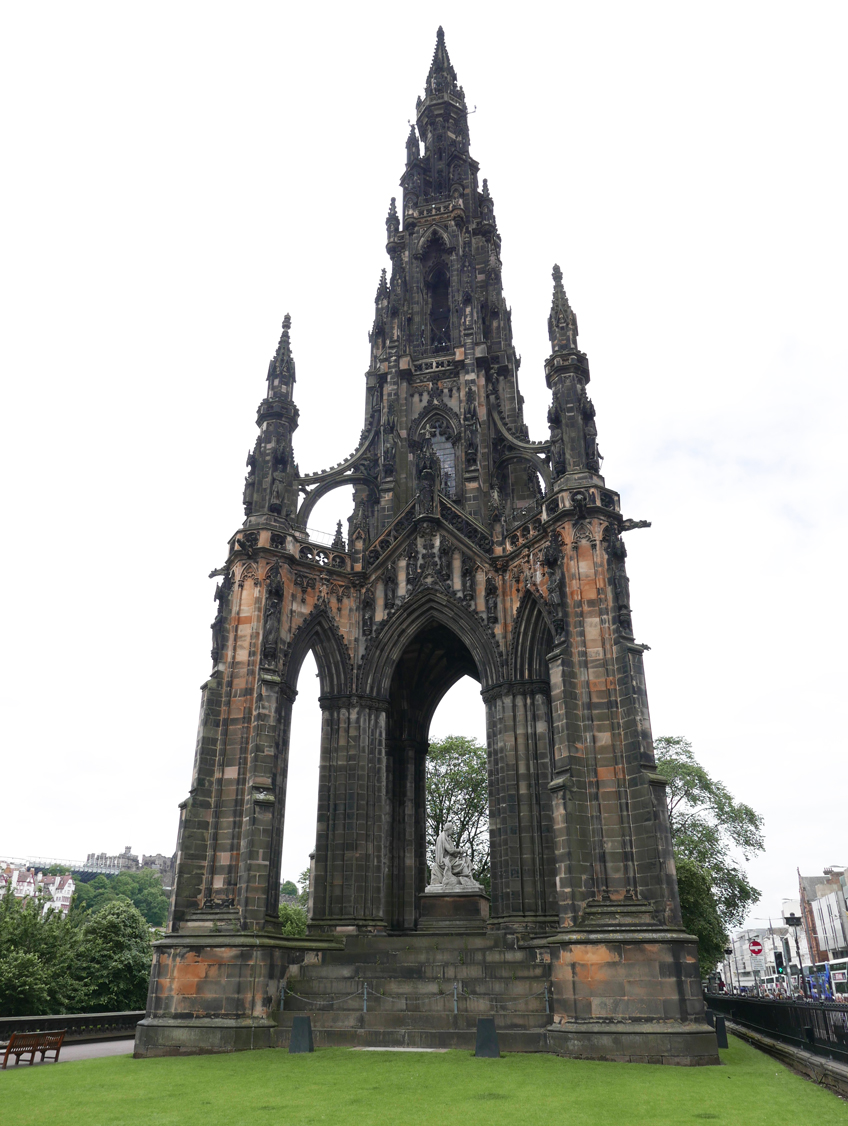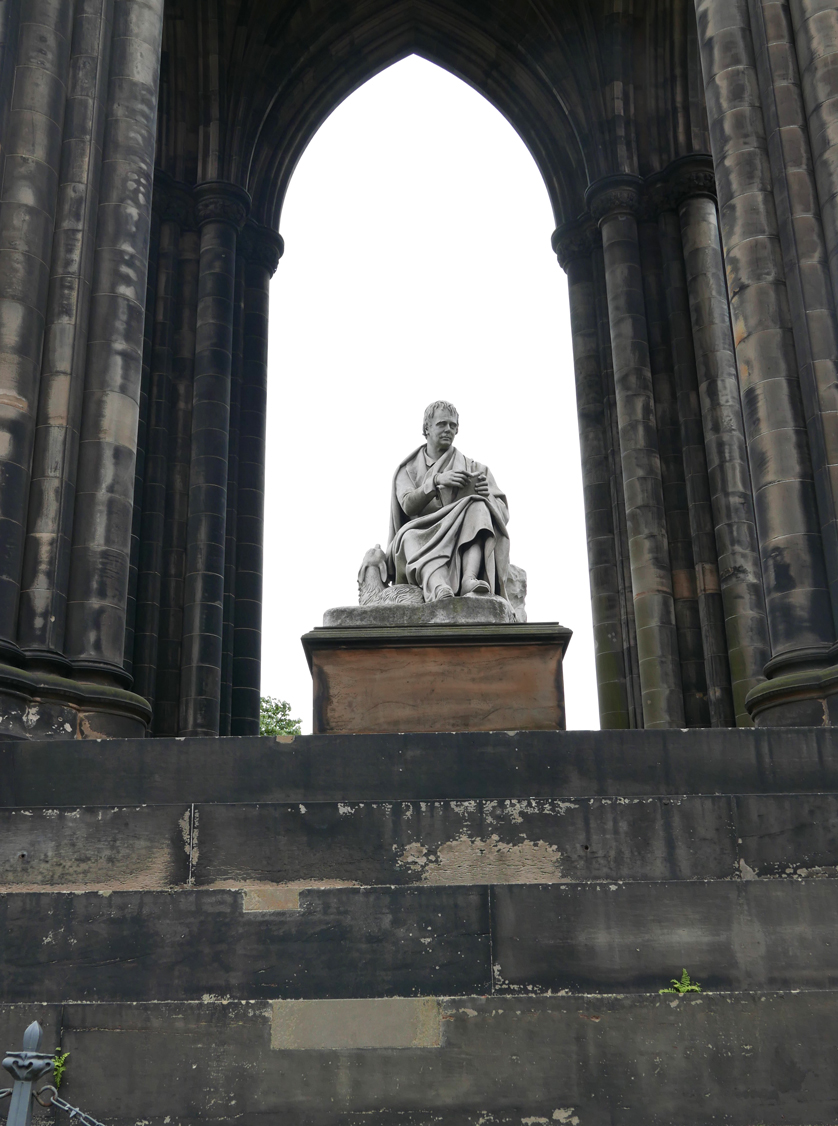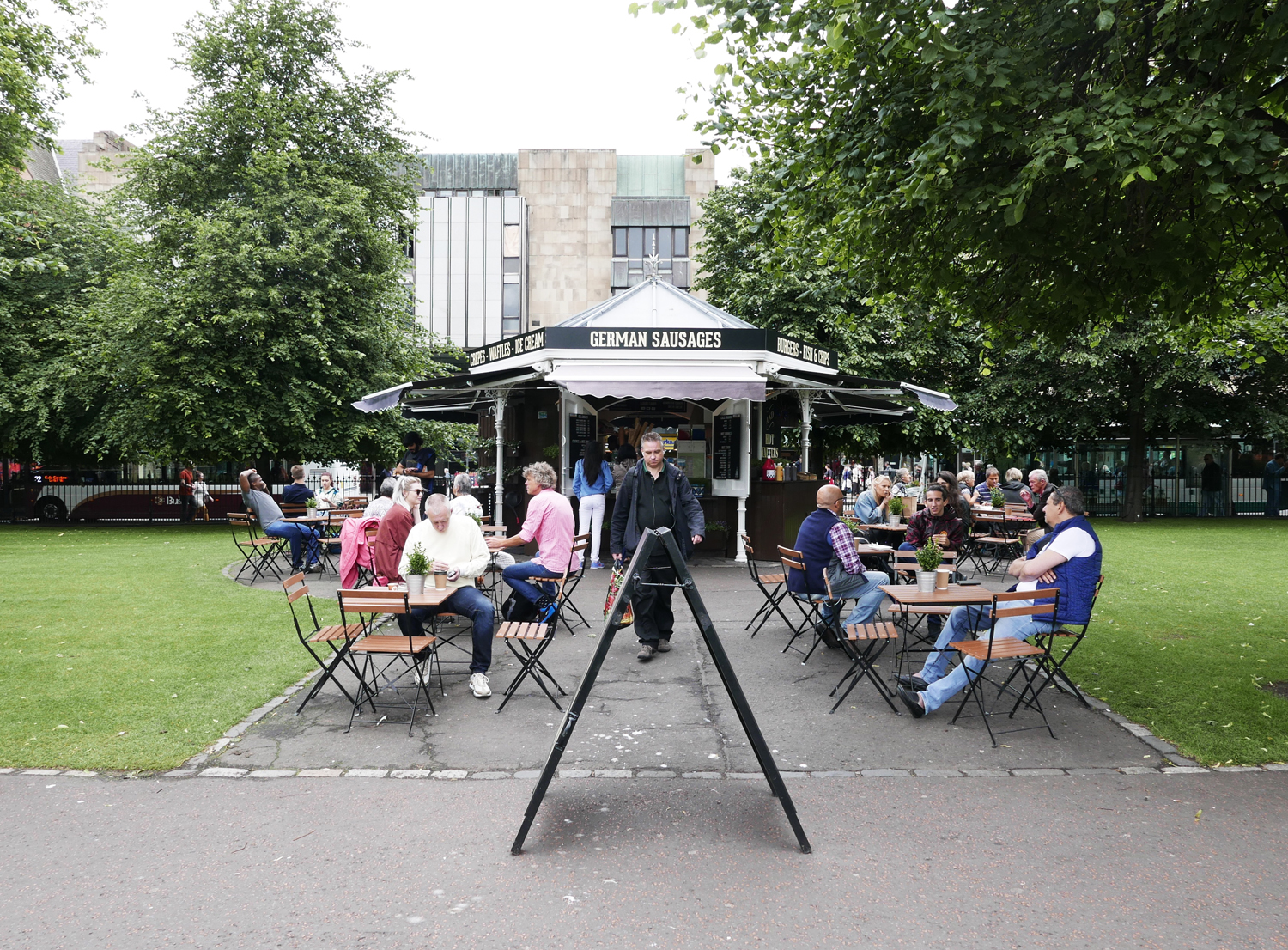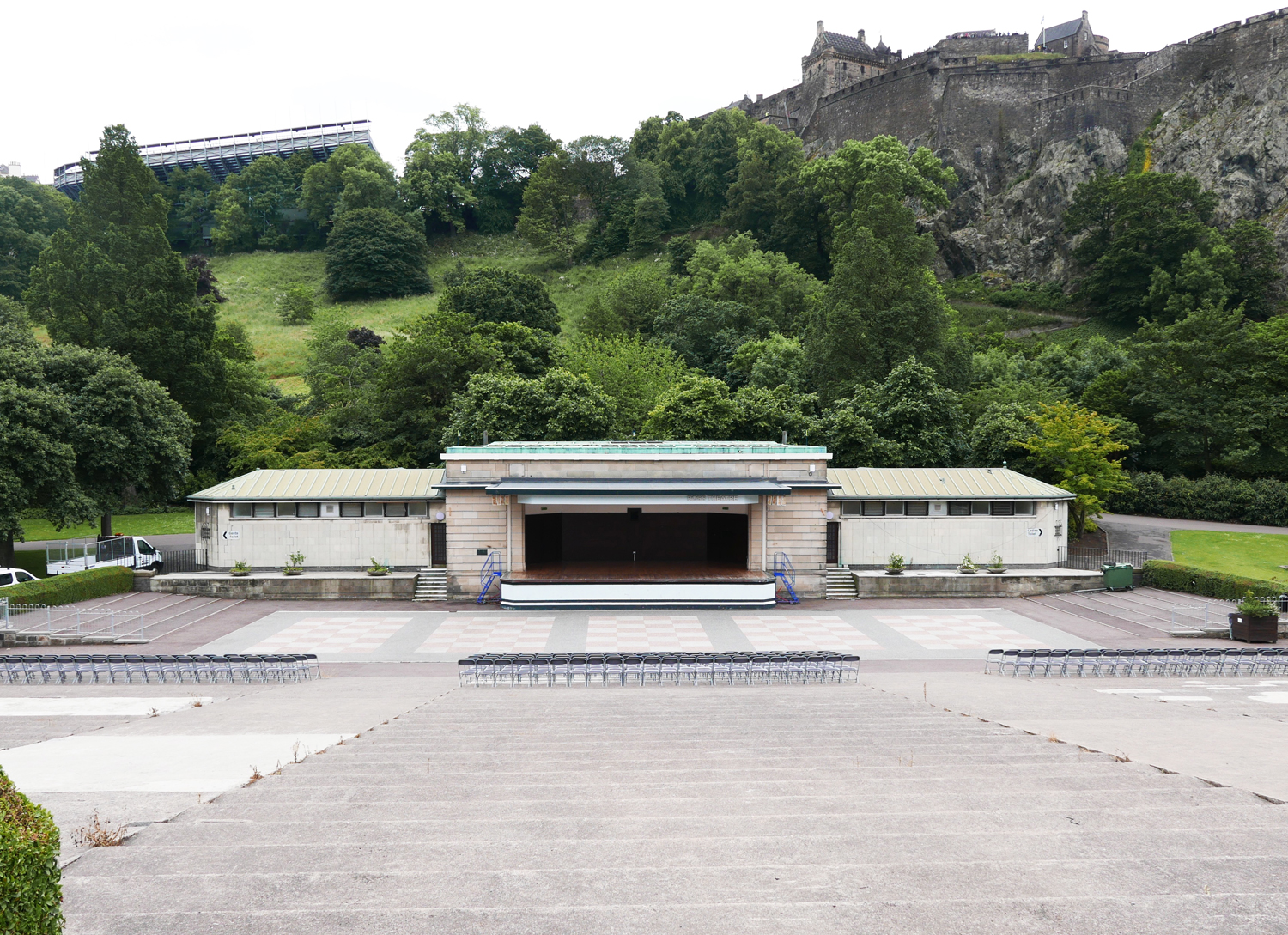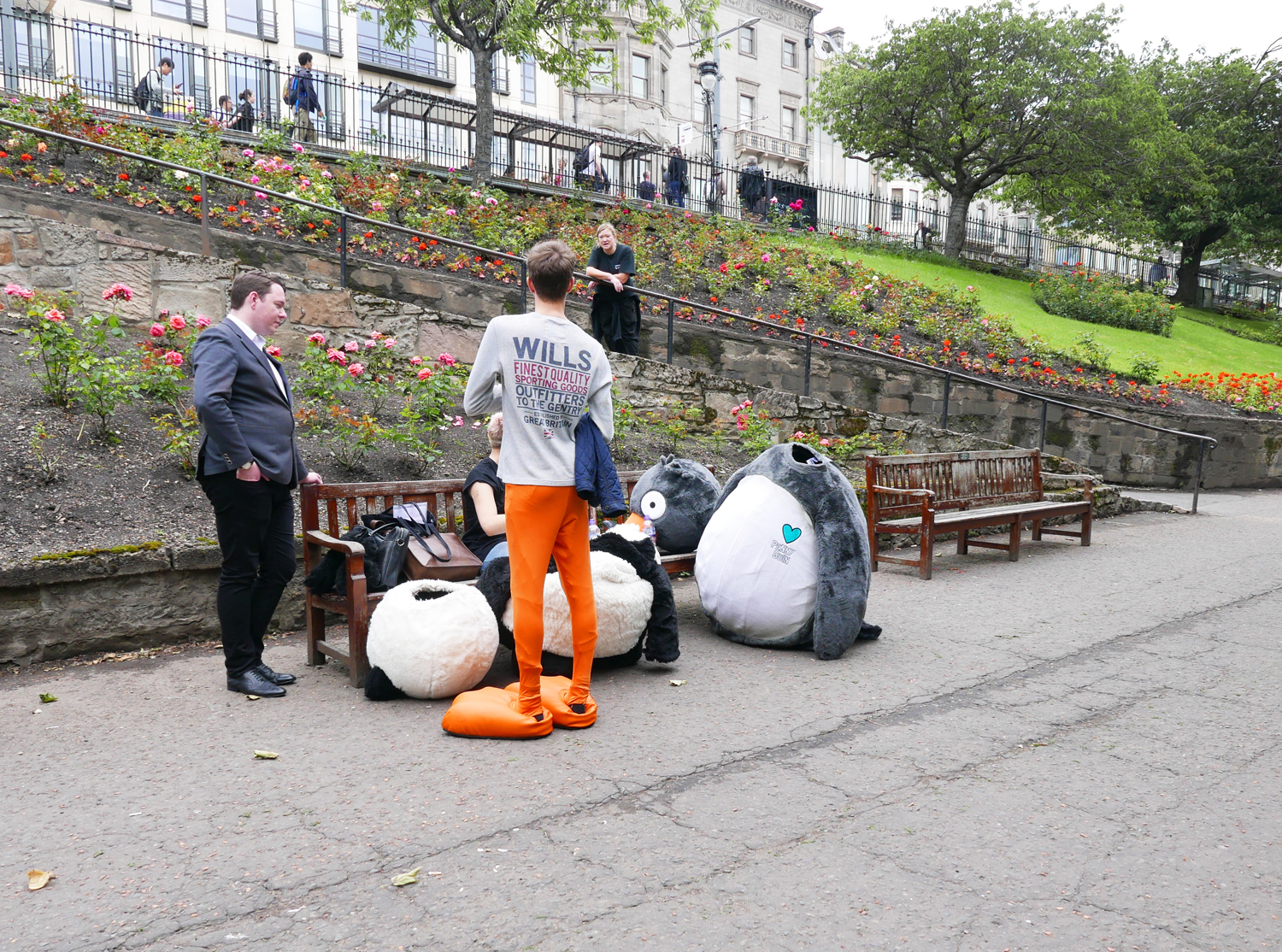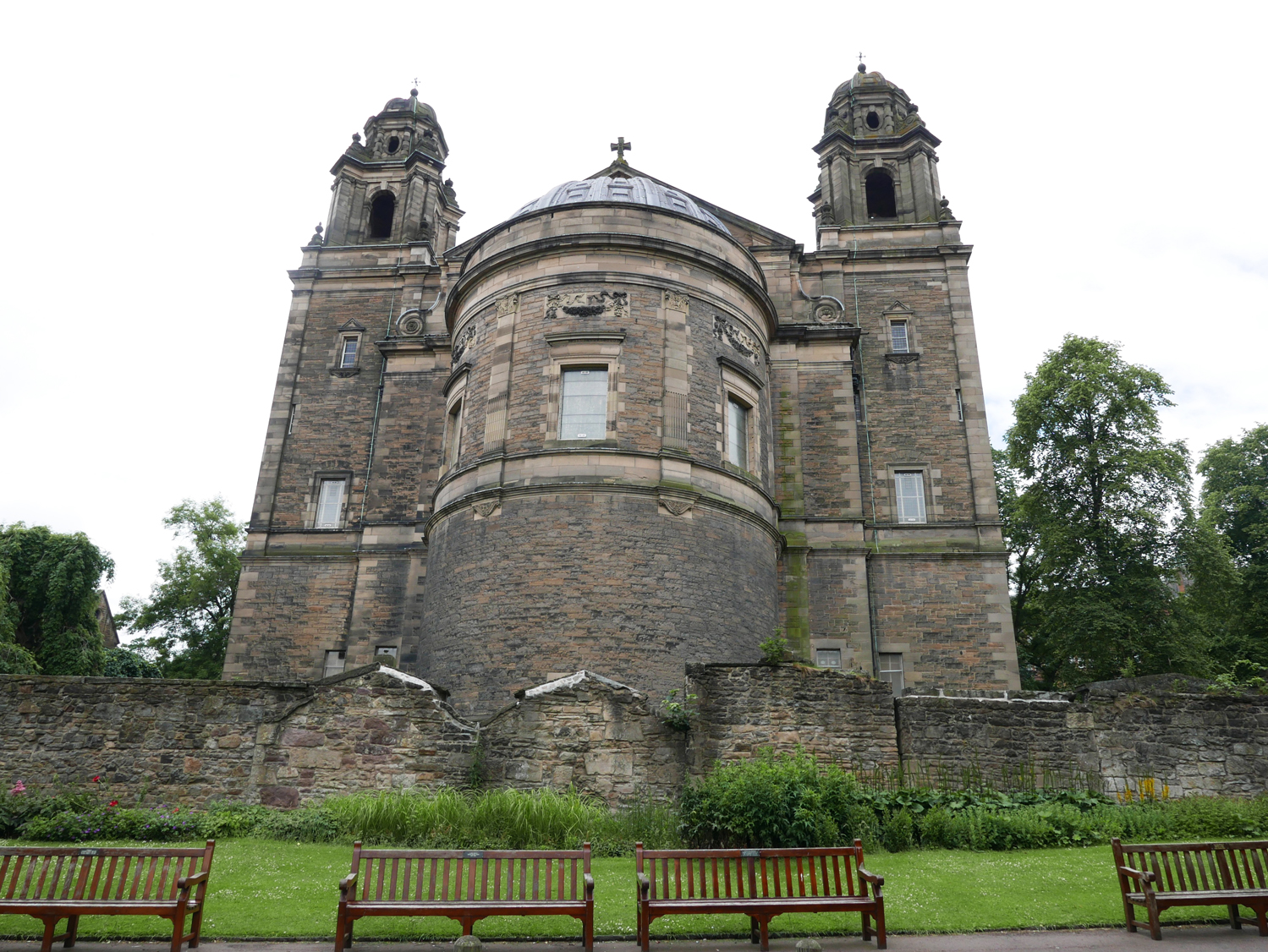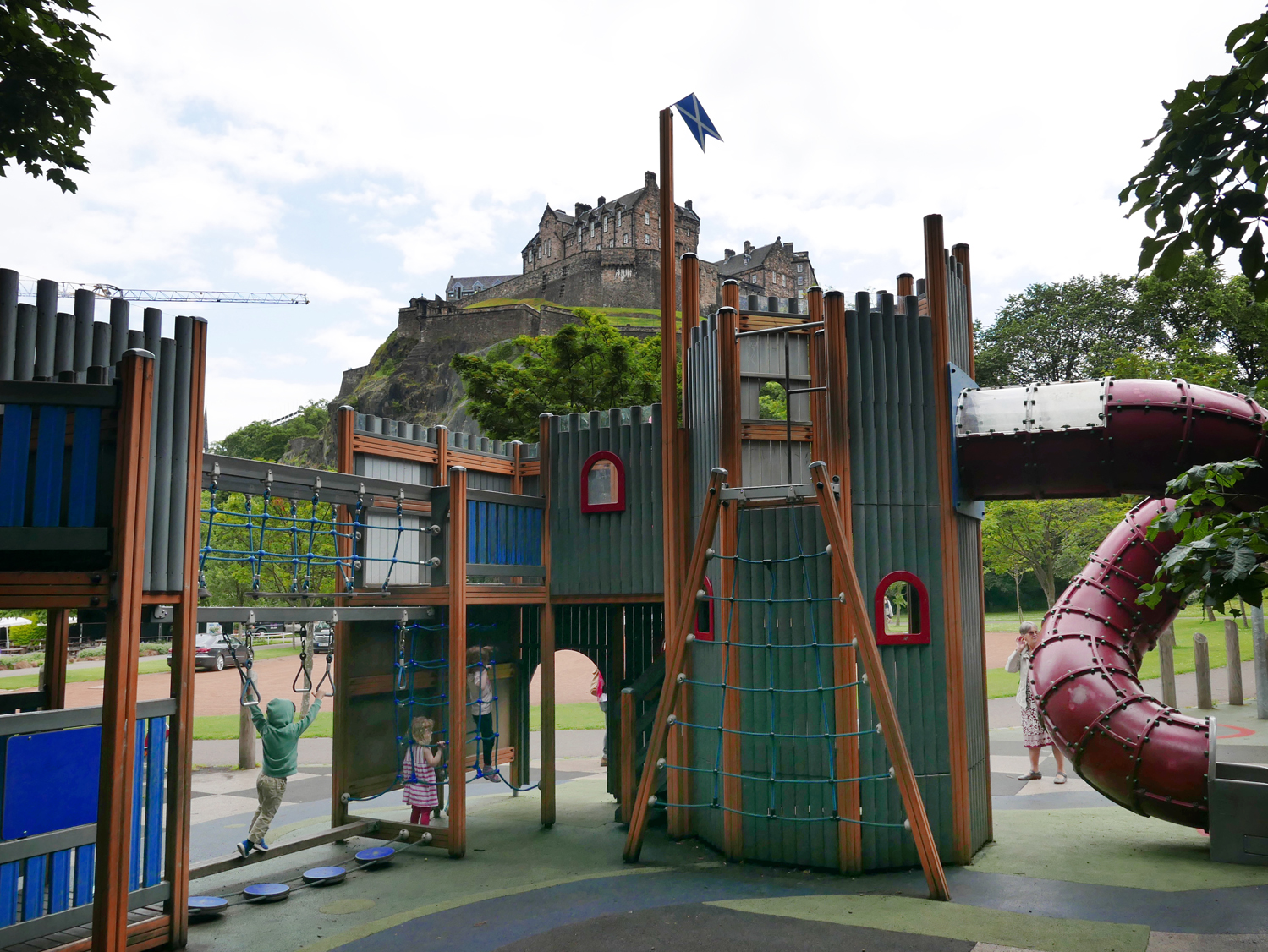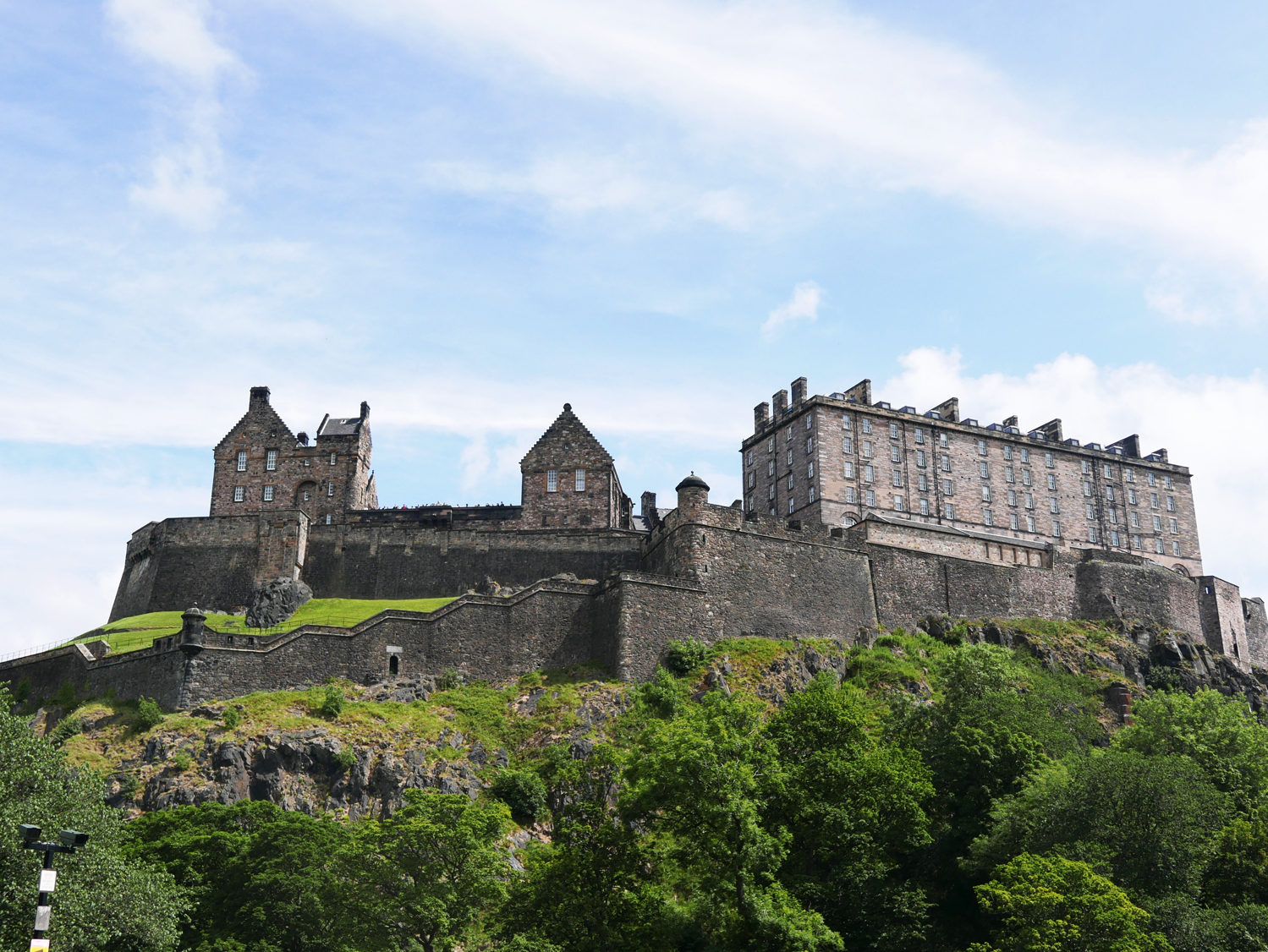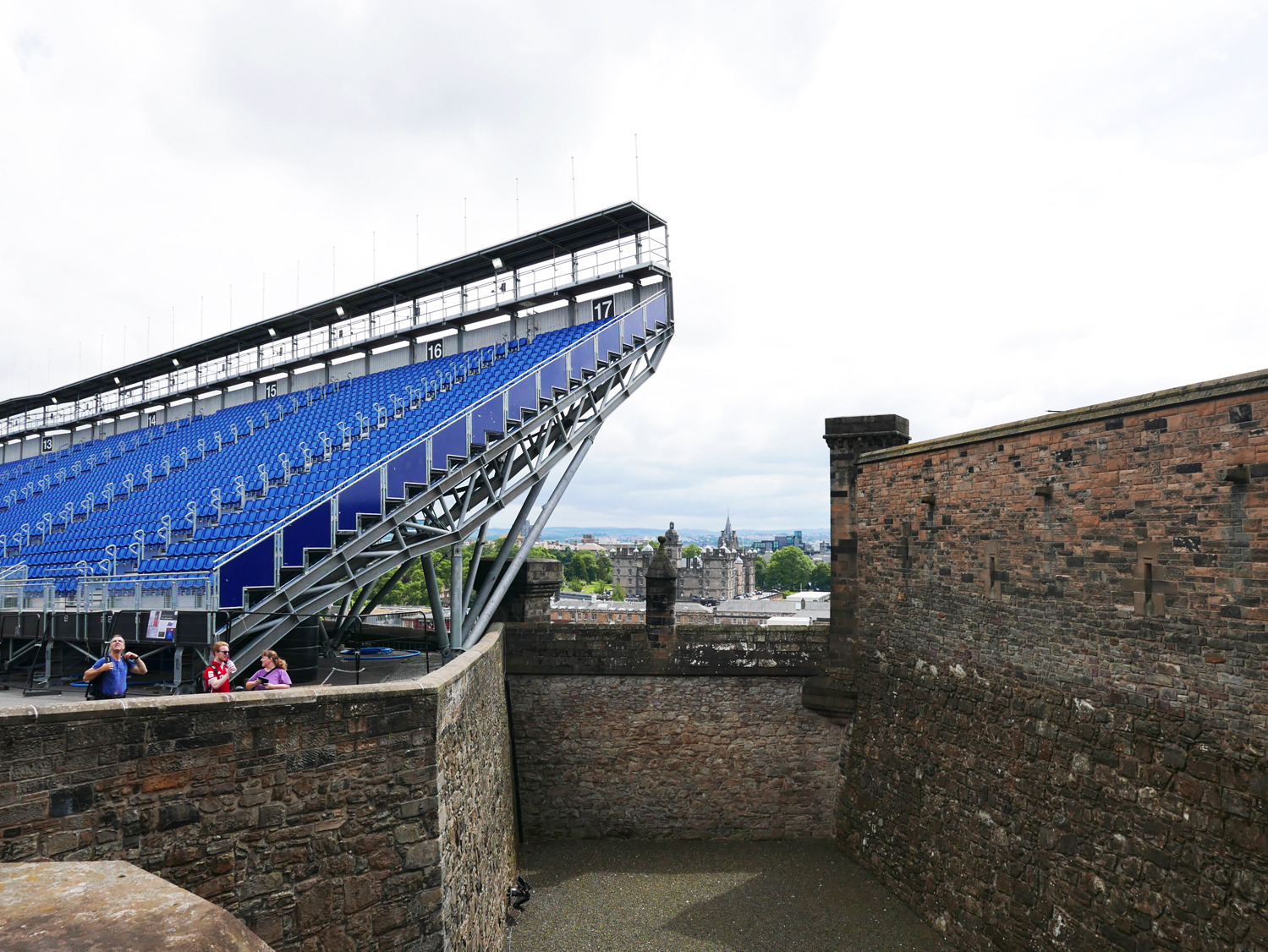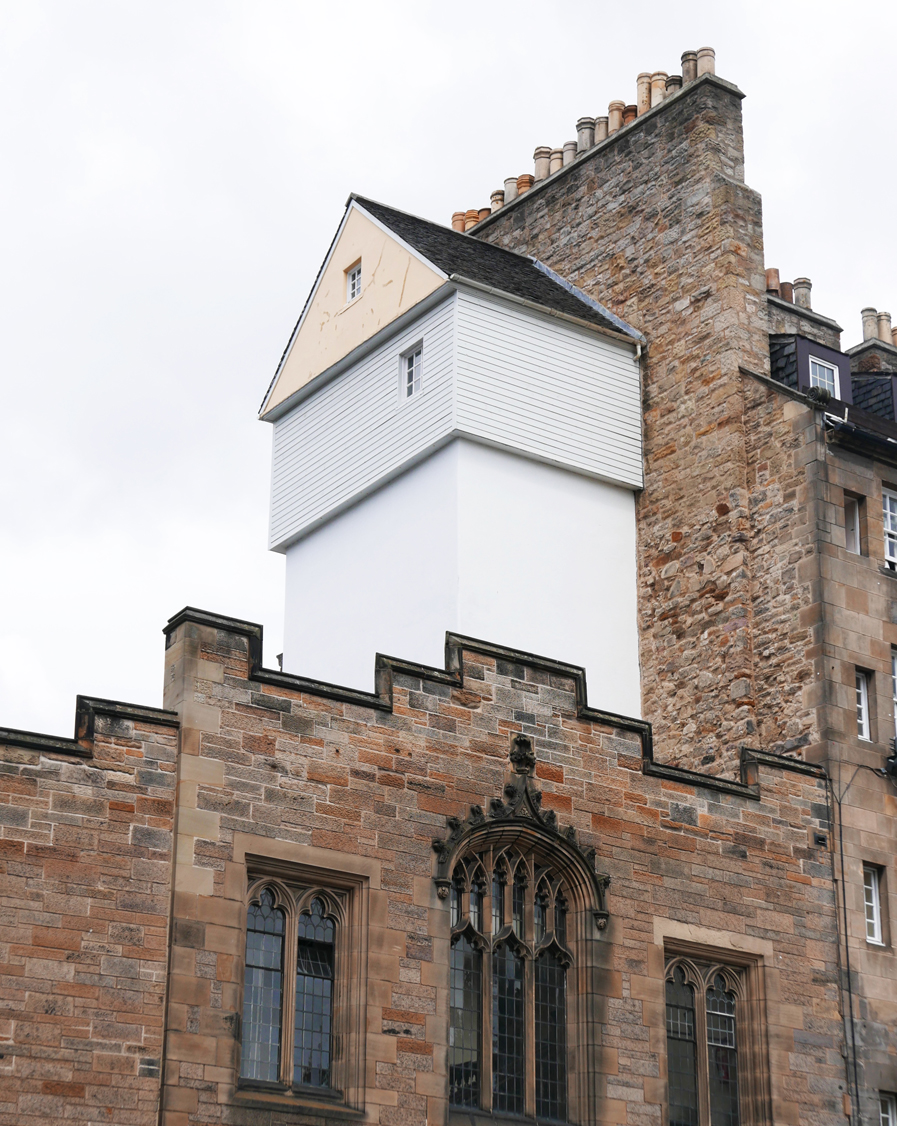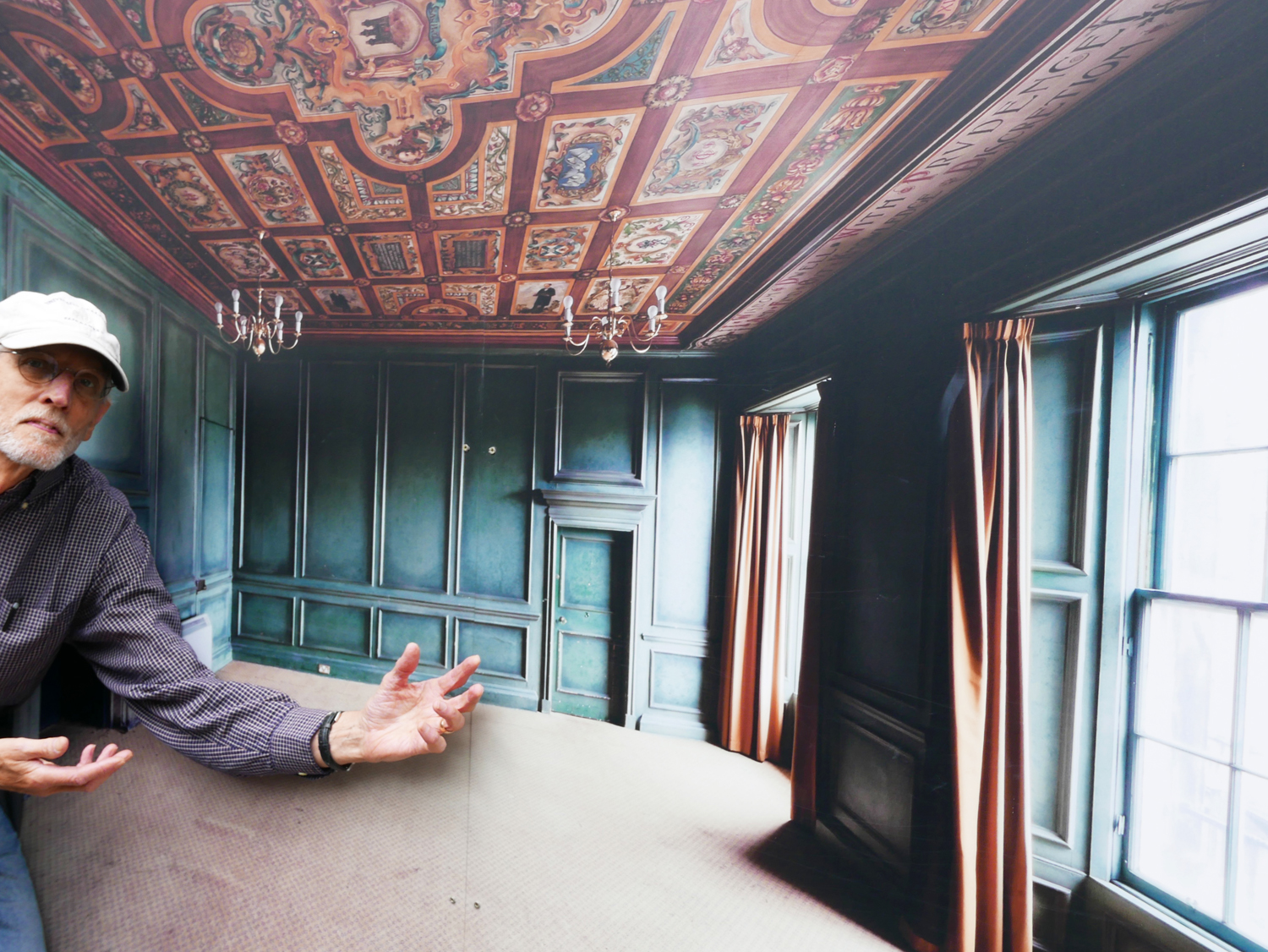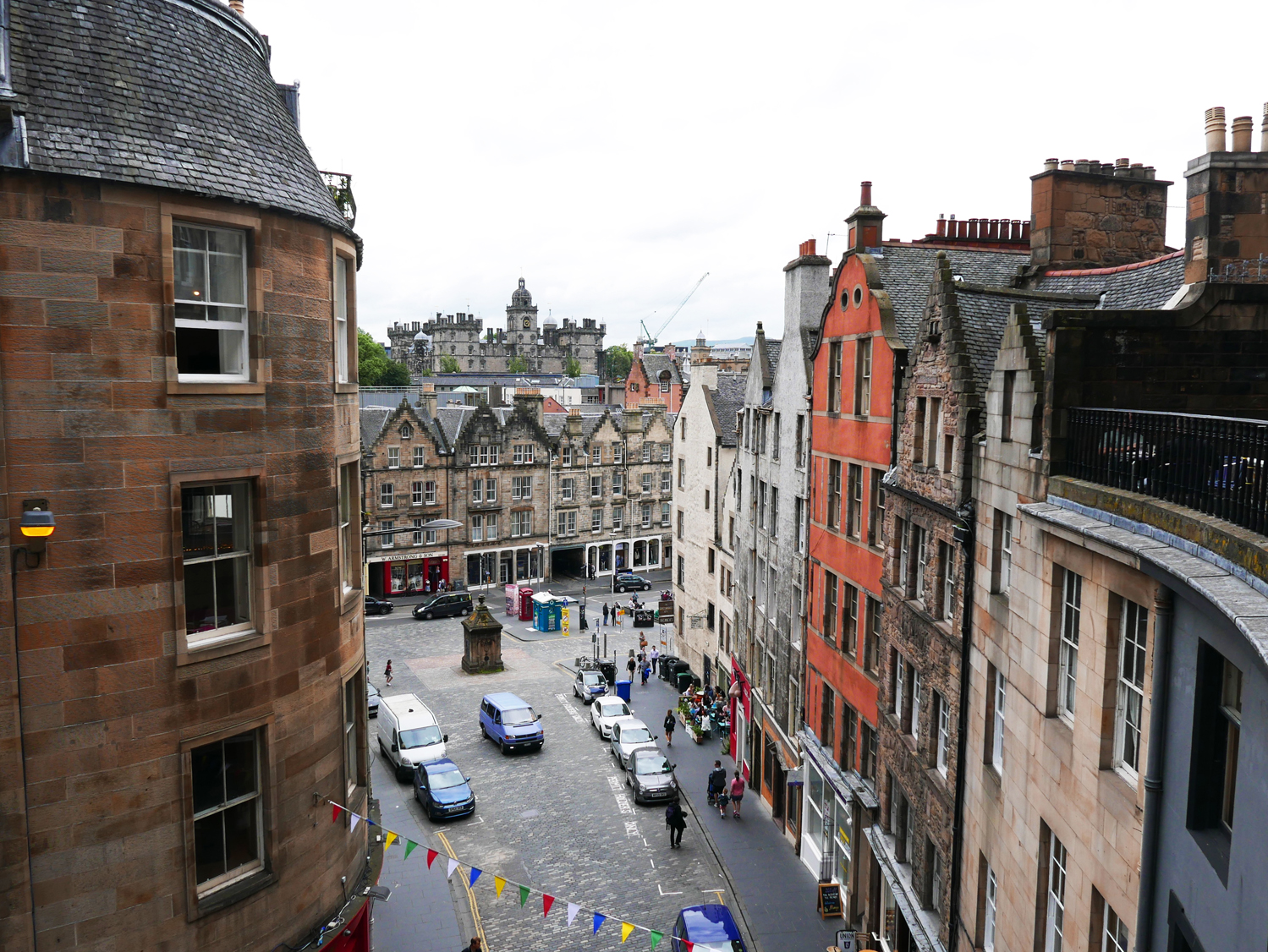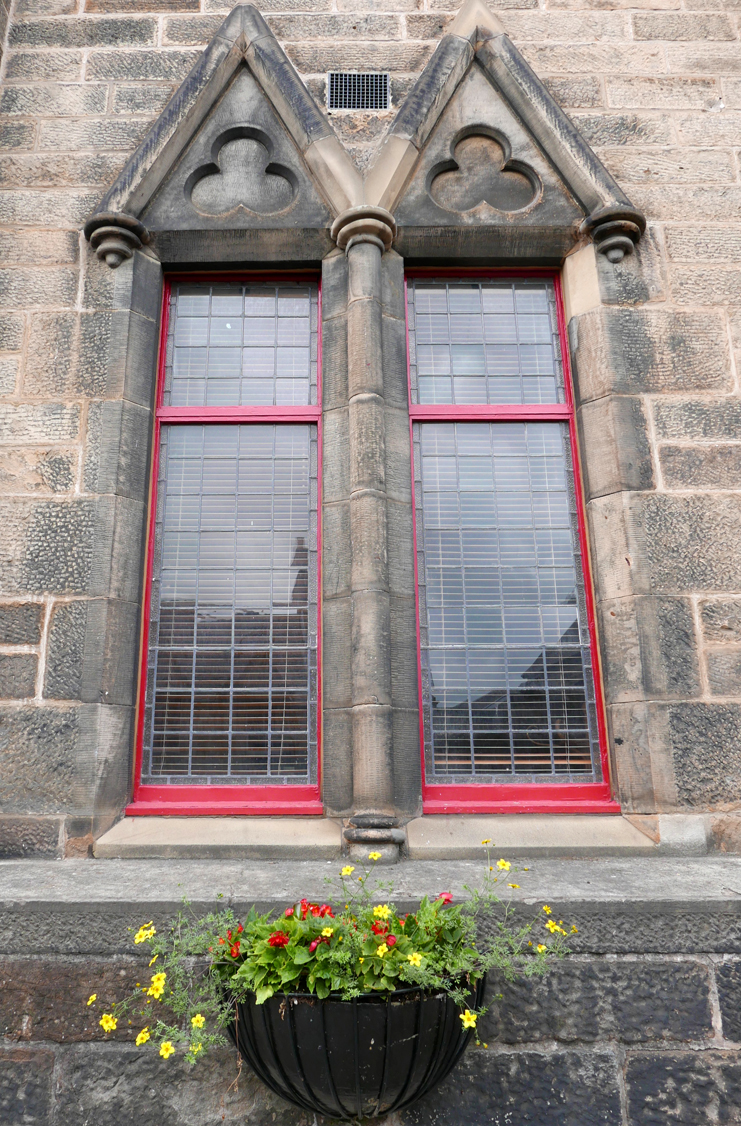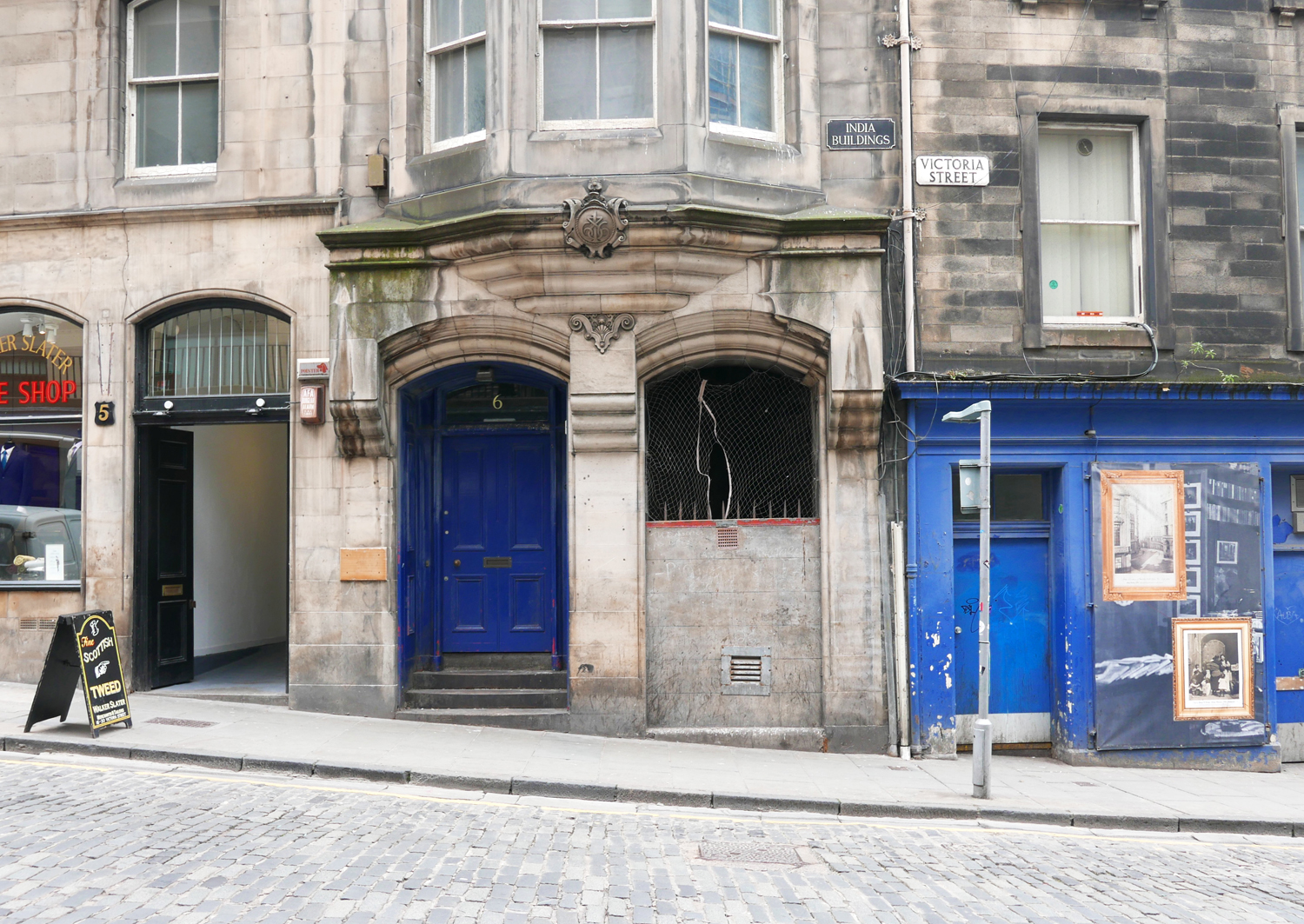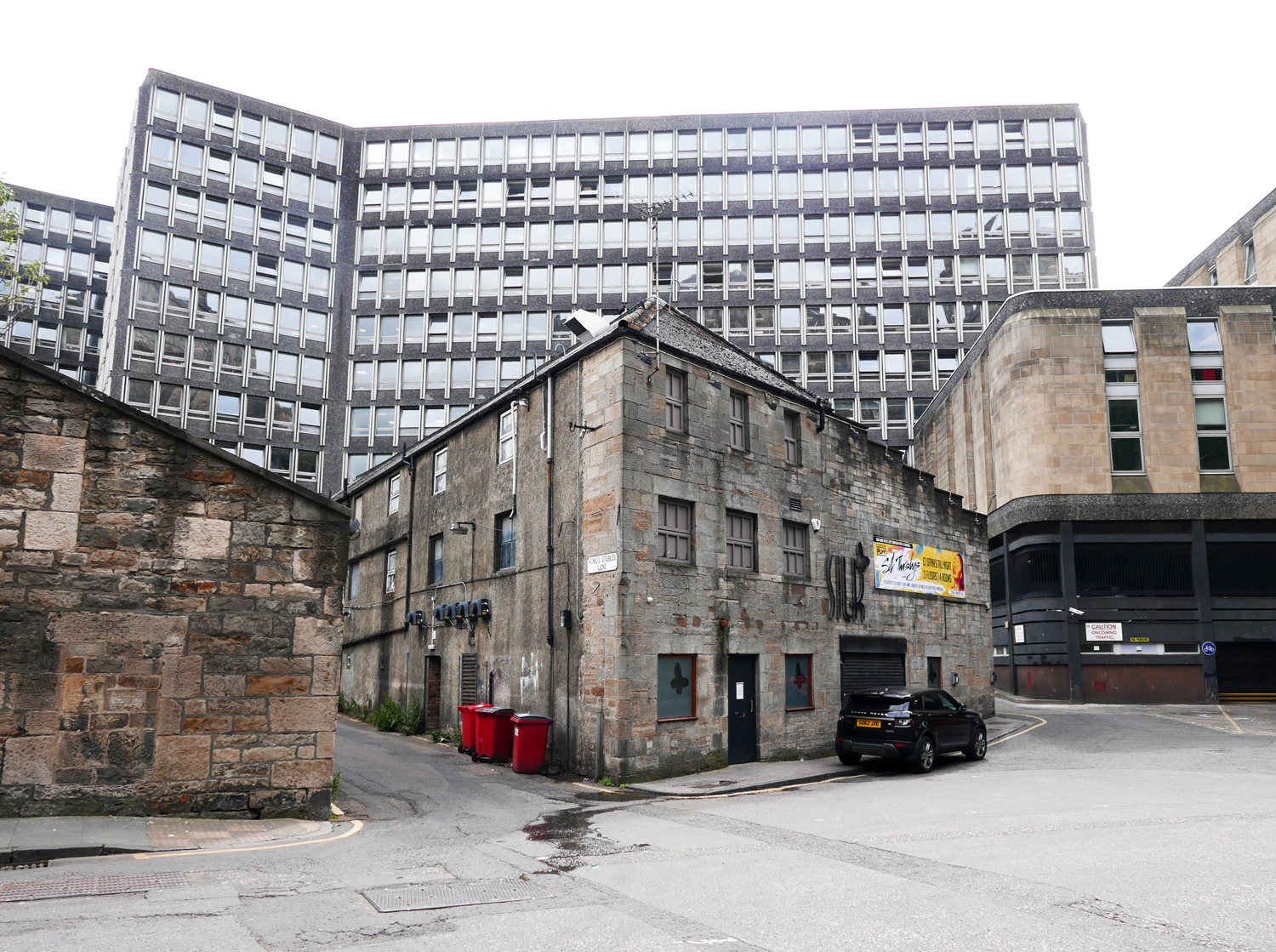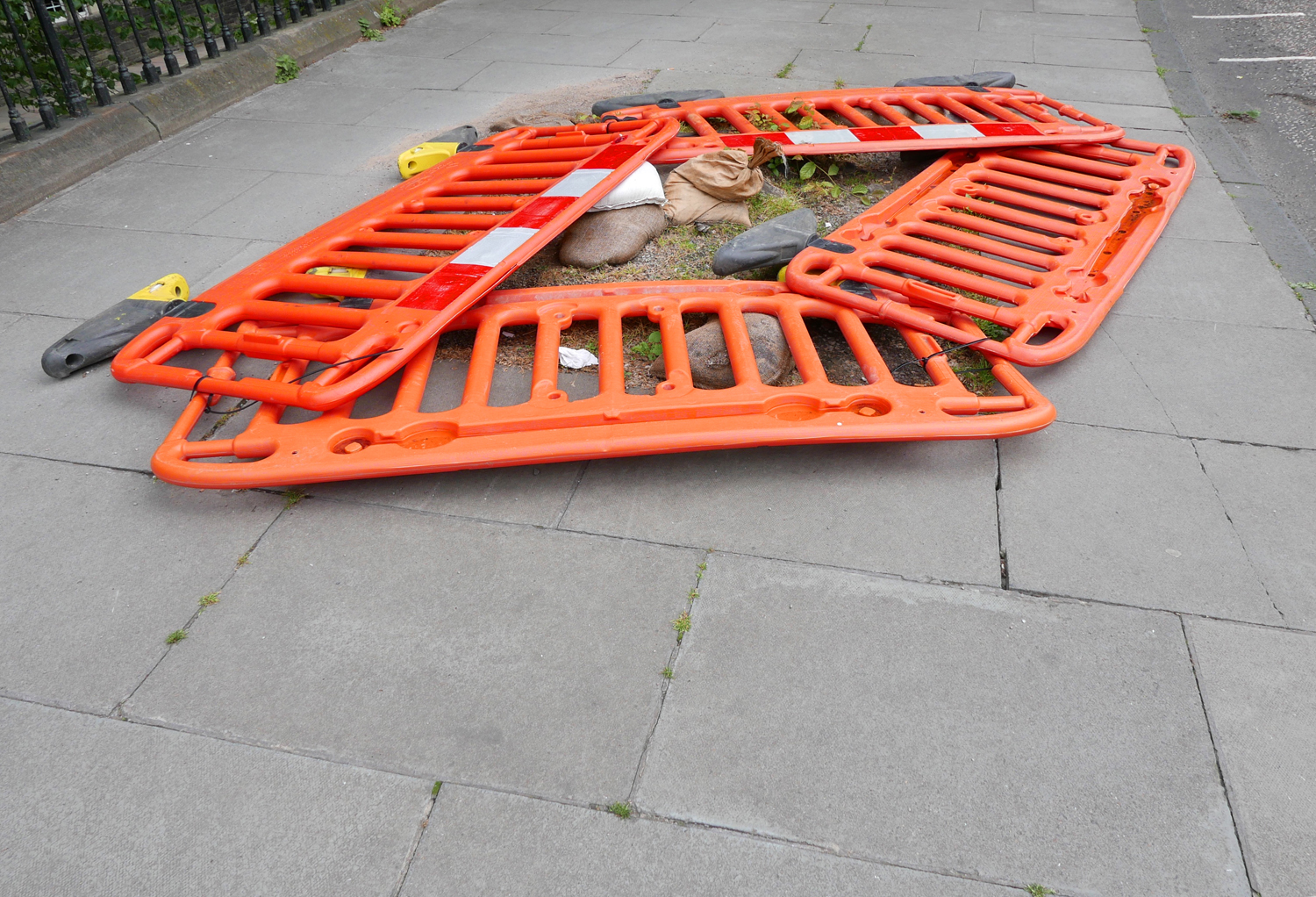We drove back to Glasgow early so as to return the rental car, and then took a train to Edinburgh, which took about an hour. We got there around 11:30, and had the day to sightsee. We walked around the old city, which was swarmed with tourists (I know, I'm one of them!). Pondering what the tourist numbers might have been in 1844...
Calvin (letter to John Houston Bills of Bolivar, 817)
The day I came into Edinburg I saw in Scotland and the north of England, traversing the road seeking harvest labour (just commencing) several hundred Irishmen looking for work, and many with their wives and children. They come over standing like sheep in a pen on the deck of a steamer, neither lie down or eat, and pay 6 and 1 S for their passage. They can earn when they get work from 2/ to 4/ a day during harvest. I forgot my contrasts— on the continent the country is for most part open without enclosures, while in Britain it is enclosed. In England with hedges in Scotland with stone fences and hedges. Both are rich, level enough and cultivated like gardens. But the most productive lands are those of Holland, Belgium and the Rhine. The climate for the whole time I have been in Europe has been too cold to be agreeable— except 2 or 3 days in Paris, when the Mercury was 81 and all complained of the heat. Every man, at all times wears cloth, even those who complain of heat do not wear light goods.
Octavia:
Edinburgh — the best views Princess street, Calton hill and the Castle — Carson [?]Went to the jewel room and regalia — Cannongate — high street — Heart of Midlothian —bridge Calton hill monument — [. . .] statuary — Sir Walter Scott's Monument — Gothic architecture — Holyrood House. Impudent women — high buildings — dirty population of the old town — women brawny, carry fish — old clothes —closes, children, swarms, [. . .]. Highland plad [sic], bagpipes —costume. Balu Nicol [?] [. . .] Knox’s corner. Localities of Scotts novels, churches, public buildings. The most beautiful corner of the city. [. . .] Arthur’s Seat as from Calton hill. A nice place to eat [. . .] Holyrood. Edinburgh a handsome city. Soldiers. “mid pleasures and palaces, though we may roam — be it ever so humble there’s no place like home.”
Went to High Church; heard a preacher, music. A. Arnotte preach. Trinity Church, 3 in one. One very readily recognizes Sunday in Edinburgh. So quiet. Every shop closed; all the booths shut; yet now and then in a close may be seen a sign, “Highland draught ale.” I doubt many partake the foaming goblet with a good deal of [. . .] of their great bard. Walter Scott’s [. . .] erected a magnificent to his memory of Gothic structure.
As ’twas Sunday, the peasantry again flocked to the stations, attired in best bib and tucker, talking their broad Scotch. Saw some lying on the moss, others pulling blooms, handing them to the passengers in way of asking alms. Poor creatures. Since I’ve been in Great B. I've seen more objects of charity apparently than ever I saw on the continent. Great barefooted, brawny, hideous looking women, carrying fish in Edinburgh; the greatest collection of filth in cow gate and the closes.

